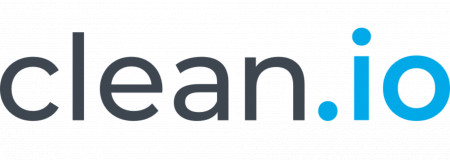cleanCART Protects Merchants From a Billion-Dollar Problem: Coupon Extensions

BALTIMORE, May 31, 2022 (Newswire.com) - E-commerce companies and online retailers across the globe are wrestling with the multi-billion dollar issue of unauthorized coupon extensions. cleanCART from clean.io helps protect merchant revenue and brand reputation from these unwanted coupon codes.
When online shoppers use browser extensions like Honey, Rakuten, or CapitalOne Shopping, those extensions inject unauthorized coupon codes into merchant websites at checkout, decreasing the average order value at the final stage of the sale.
"The growing market for third-party sites, such as Honey and Rakuten, is a troubling sign for e-commerce merchants across the world," said clean.io CEO Geoff Stupay. "These sites inject unauthorized coupon codes, hijacking the user experience and, more importantly, taking revenue from the merchants. Our solution is a proven method to not only stop these codes from injecting themselves into a merchant's site but to also protect revenue."
Data from clean.io finds that more than 2.04 billion users globally are using coupon codes in 2022. While merchants issue coupon codes as a strategy to spur sales, they do so on their terms, methodically deciding who to make these codes available to and when to do so.
Coupon redemption rates are expected to increase 94% in 2022, and it's estimated that nearly a third of online shoppers in the United States have a coupon extension installed on their browser. As adoption of these browsers extensions continue to grow, merchants can expect impacts to e-commerce infrastructure, including:
- Hijacking the user experience and injecting coupon codes that shoppers may not be entitled to use or popping up price comparisons that can lead customers to purchase from your competitors and result in higher cart abandonment rates.
- Hijacking affiliate credit and charging retailers for conversions that they did not drive.
- Hijacking commissions from affiliates and partners that drive the sale.
- Scraping and sharing coupon codes targeted for specific groups, such as law enforcement, veterans, employee discounts, and more.
- Reducing average order value each time an unauthorized code is used.
- Encourage bargain hunters, which can reduce customer lifetime value (CLV).
Excessive discounts can also hurt a merchant's brand reputation and discourage conversions when discount codes are not available.
cleanCART is a proven method to protect merchants' revenue by blocking the use of unwanted discount codes from their-party coupon extensions. On average, merchants deploying clean.io solutions have seen results including:
- 3% increase in conversation rates.
- Up to 15% increase in cart completion rates.
- Average of $18 recovery per order when protection is active.
For more information, please visit www.clean.io.
About clean.io
Founded in 2017, clean.io is a digital engagement security platform that provides businesses with the tools they need to protect their user experiences and brands by controlling the third-party code that executes on their websites. From helping some of the world's largest online publishers to prevent malvertising, to giving e-commerce merchants the ability to block the injection of unwanted discount codes at checkout, clean.io's mission is to ensure that brands truly own and control their most valuable digital assets - their websites. Visit clean.io at www.clean.io.
Media Contact:
Mike Albanese
mike.albanese@newswire.com
Source: clean.io
